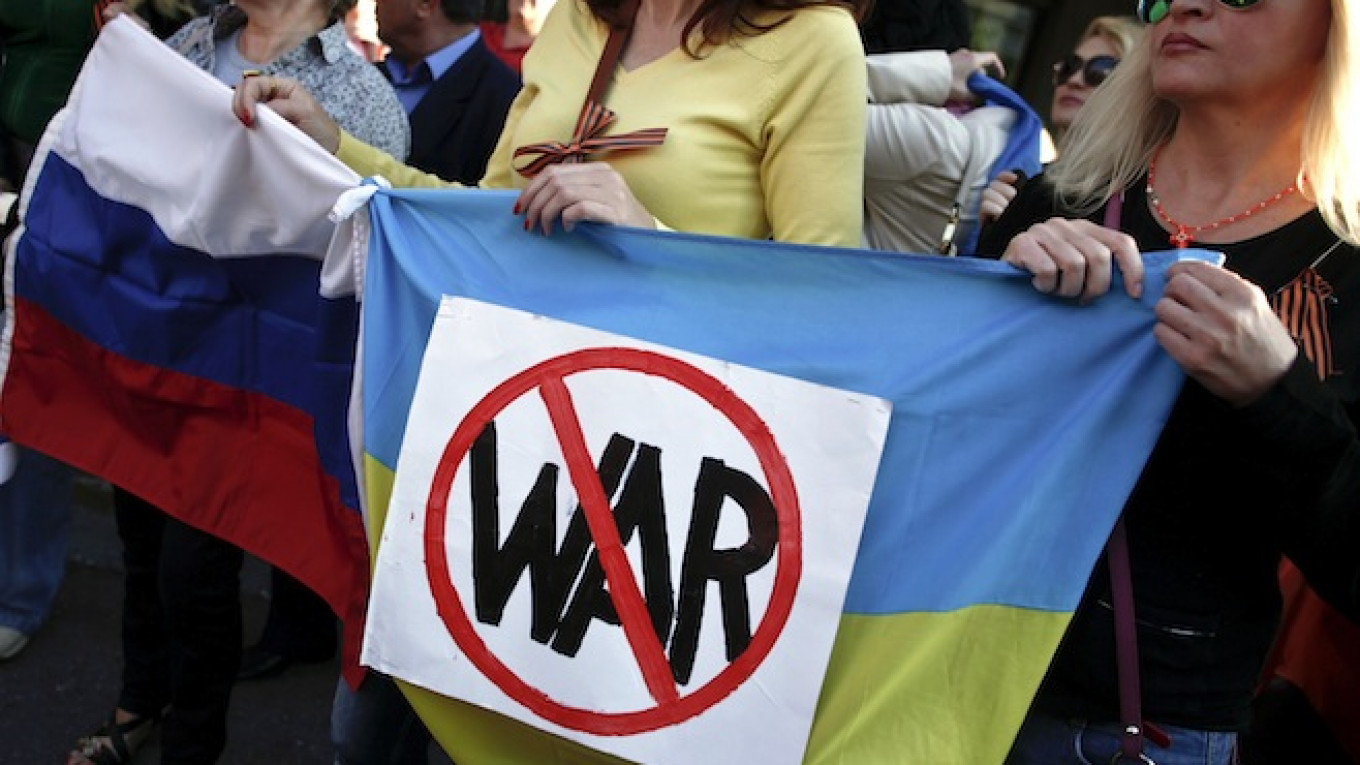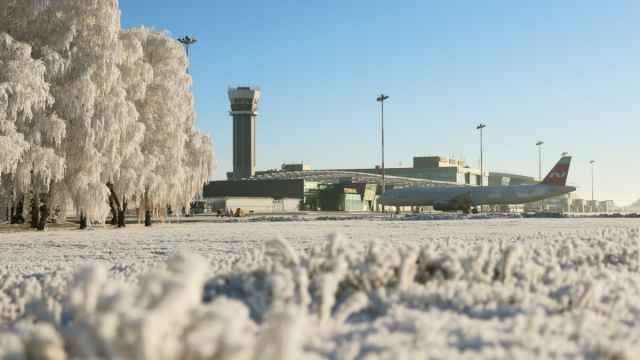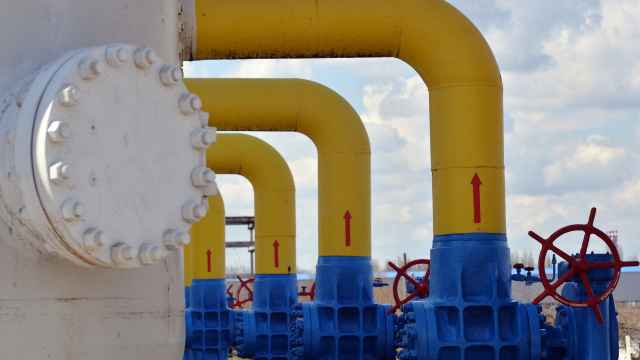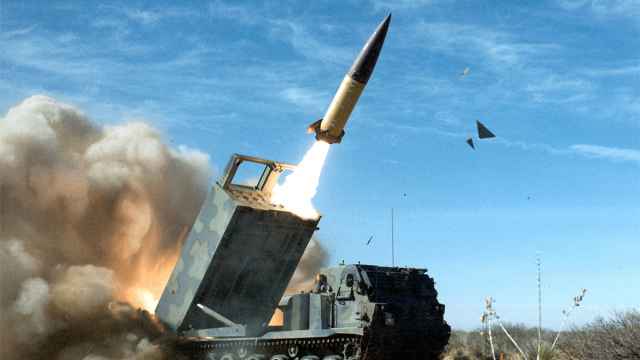European Union governments reached a preliminary agreement on Wednesday to expand the legal criteria for targeting people and companies with sanctions to pressure Russia over Ukraine, paving the way for new listings as early as Monday, diplomats said.
The decision should make it easier for the EU to target Russian companies — something it has not done yet, unlike the U.S. — but needs formal backing during a meeting of EU foreign ministers on Monday.
"We have political approval, and it will have to be rubber-stamped," one diplomat said, speaking on condition of anonymity. "New sanctions are likely on Monday."
The EU has already imposed asset freezes and visa bans on 48 Russians and Ukrainians over Moscow's annexation of Ukraine's Crimea region.
It was not immediately clear what the new criteria would be or whether they would allow for targeting of Russian energy giants such as Gazprom or Rosneft.
Previously, the EU targeted people it thought were directly responsible for endangering the territorial integrity of Ukraine.
But several EU governments, led by Poland and Britain, pushed to have that definition expanded significantly, possibly to include those supporting the government in Moscow, which would open the way to targeting Russian oligarchs.
Others were reluctant, arguing that the bloc should be careful not to cast its net of sanctions too wide and hurt its own economy in the process.
The EU is also anxious to have a sound legal basis for its Russia sanctions to avoid legal challenges as has occurred in the past with sanctions on Iran.
U.S. Treasury Secretary Jack Lew and Britain's finance minister, George Osborne, conferred about the sanctions in a phone call on Wednesday.
The Treasury Department said the two officials discussed "the stepped-up planning underway bilaterally and with the EU on the range of tools available, including sanctions that target companies in certain important sectors of the Russian economy, should Russia persist in taking destabilizing actions."
Earlier on Wednesday, Herman van Rompuy, the president of the European Council, threatened Russia with more sanctions.
"We call on Russia to refrain from any steps to further destabilize Ukraine and instead to engage in a diplomatic resolution of the crisis," said van Rompuy, who represents the EU's 28 national governments.
"Further steps in destabilizing Ukraine will call for additional sanctions," he said.
A Message from The Moscow Times:
Dear readers,
We are facing unprecedented challenges. Russia's Prosecutor General's Office has designated The Moscow Times as an "undesirable" organization, criminalizing our work and putting our staff at risk of prosecution. This follows our earlier unjust labeling as a "foreign agent."
These actions are direct attempts to silence independent journalism in Russia. The authorities claim our work "discredits the decisions of the Russian leadership." We see things differently: we strive to provide accurate, unbiased reporting on Russia.
We, the journalists of The Moscow Times, refuse to be silenced. But to continue our work, we need your help.
Your support, no matter how small, makes a world of difference. If you can, please support us monthly starting from just $2. It's quick to set up, and every contribution makes a significant impact.
By supporting The Moscow Times, you're defending open, independent journalism in the face of repression. Thank you for standing with us.
Remind me later.






